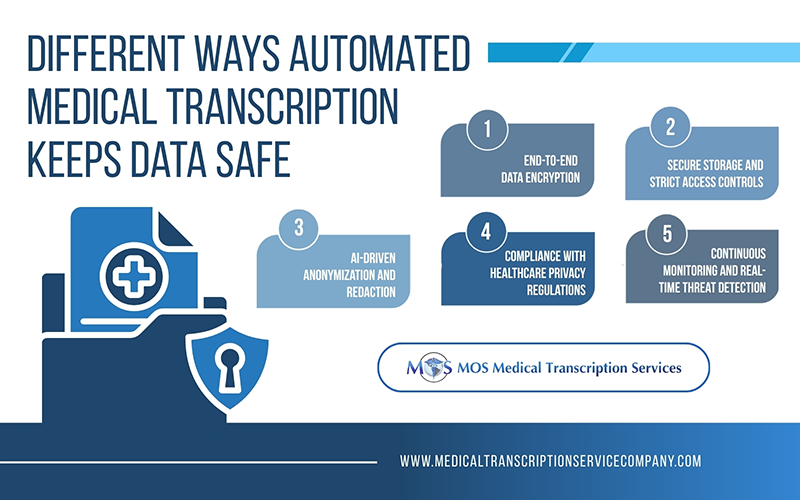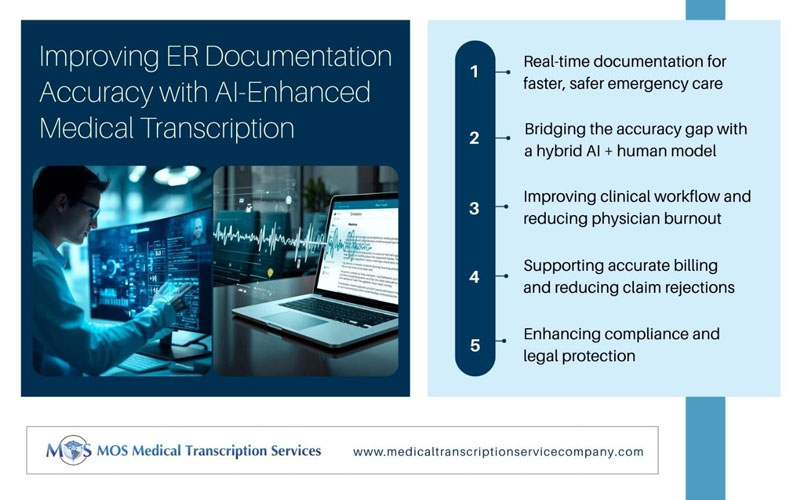Table of Contents
In modern dental practices, precise documentation is more than just an administrative requirement-it is an essential element for delivering quality patient care, ensuring compliance, and running an efficient operation. This is where dentistry transcription for practice management plays a crucial role. From streamlining dental practice documentation to enhancing communication among team members, transcription services are becoming increasingly important in helping dental clinics manage their workflows efficiently and ethically.
Enhancing Patient Care through Accurate Documentation
Professional dentistry transcription ensures that every detail discussed during patient visits—such as symptoms, diagnoses, treatment options, and follow-up plans—is accurately recorded and easily retrievable. Accurate transcripts enable dentists to create personalized treatment plans based on a comprehensive understanding of a patient’s medical and dental history.
For example, if a dentist carefully documents a patient’s periodontal measurements and radiographic findings over time, these records become invaluable for monitoring disease progression and adjusting treatments as needed. Transcribed documentation also assists in spotting early signs of dental issues like enamel demineralization, which might be missed without detailed records.
Another significant benefit is the continuity of care. In a busy practice where patients may see different dental professionals, hygienists, orthodontists, or specialists, having reliable, accessible transcripts ensures that everyone on the team is informed and aligned. This minimizes communication errors and results in better-coordinated, more effective treatment.
Dental transcription improves patient care by enabling accurate diagnosis, timely intervention, and consistent follow-up, all of which are central to quality care delivery.
Promoting Patient Engagement and Education
Well-documented dental transcripts also serve as powerful tools for patient education. When patients have access to clear, understandable records of their condition and the steps involved in treatment, they are more likely to adhere to care plans. A visual representation of their dental health journey, such as the progression of tooth decay or improvements post-treatment, can empower them to take ownership of their oral health.
Transcripts that include treatment rationale, preventive advice, and post-operative care instructions foster transparency. Involving patients in this way not only builds trust but also encourages proactive participation in their long-term care.
Supporting Legal and Ethical Responsibilities
In the field of dentistry, documentation is vital for meeting legal, ethical, and professional standards. Transcription services help maintain meticulous records that are essential in demonstrating informed consent, recording treatment discussions, and ensuring that a dentist’s actions align with established care protocols.
In the unfortunate event of a legal dispute, professionally transcribed records can serve as a protective tool. For instance, if a patient claims they were not informed of potential risks, detailed transcripts, especially those that include consent discussions and treatment notes, can help validate the care provider’s account.
Ethically, maintaining accurate and secure records is part of a dental professional’s duty. Transcription helps practices uphold these standards by ensuring consistency, confidentiality, and clarity in recordkeeping. Using HIPAA-compliant transcription services ensures that patient data remains secure and meets all privacy regulations, protecting both the practice and its patients.
Streamlining Practice Management
Managing a dental office involves much more than clinical care, it requires efficient administrative processes. Professional dentistry transcription supports modern practice management by facilitating better workflow, improving communication, and enhancing overall organization.
With digital transcription, practices can access and update records quickly, share information seamlessly among team members, and reduce the time spent on manual note-taking. This contributes to efficient workflows, allowing more time for direct patient care.
Moreover, proper dental practice documentation assists in billing and insurance processes, supporting accurate and timely claim filing. Clear records of procedures and patient interactions reduce risk of claim denials and delays, leading to improved revenue cycle management.
Inventory management and equipment maintenance schedules can also benefit from proper documentation. For example, regularly updated records of equipment usage and maintenance logs, transcribed from voice memos or technician reports, ensure that all assets are functioning optimally and compliant with safety regulations.
Leveraging Technology for Better Outcomes
As dental practices embrace digital transformation, transcription services are evolving alongside them. Voice recognition software and cloud-based platforms are streamlining documentation processes. Yet, human oversight remains essential. Experts in clinical transcription for dentists ensure the correct use of dental terminology, accurate interpretation of context, and meticulous attention to detail—something automated systems still struggle to replicate reliably.
For practices aiming to improve efficiency and patient care, outsourcing transcription to specialized providers offers a smart, cost-effective solution. These services help reduce administrative load while ensuring that records remain clear, accurate, and legally sound.
Dentistry transcription service is more than a convenience-it is a cornerstone of effective, compliant, and patient-centered dental care. It plays a key role in enhancing dental office efficiency, ensuring legal and ethical compliance and improving patient care. By integrating HIPAA-compliance and embracing clinical transcription for dentists, modern practices can not only meet regulatory standards but also elevate the overall patient experience and optimize their operational workflow.



